These days, you can find a long list of brokers in the market claiming to be the best. However, not all of them are actually good for beginners. How so?
Competition among online brokers is getting fiercer every day, which is a good thing because it lowers the cost and offers more services. However, this also means that more new firms are coming into town, hoping to attract users with their various promotions. Thus, it can be hard especially for new traders to find the one that fits them.
Choosing the right broker is a rather essential step in becoming a successful trader. If you have a good broker, your chance of success will be bigger. But still, the process is not that simple. You need to conduct thorough research about forex trading and consider a bunch of important factors.
Contents
Top 3 Beginner Mistakes
We have summarized some common mistakes that novice traders often make when choosing a broker to prevent you from falling into the same pits.
Common Misunderstandings
Beginners typically don't have much knowledge about forex trading yet, so they often just follow general instructions or online trading advice. However, without a good understanding, many things can be misinterpreted. For instance, most beginners would think that they should look for a broker that offers demo accounts, which can be used to practice their trading skills without having to worry about any real losses.
In reality, demo accounts can never offer the same results as live trading. There are many cases where traders make huge profits in a demo account, only to get a losing streak once they move to a live trading account. It mainly happens because there's a lack of emotions. Fear, greed, and hope play a huge part in one's trading performance, but most of the time, they simply don't exist when using pretend funds.
That being said, demo accounts certainly do offer a number of benefits because it gives new traders a general idea of how the company's software and the market work, but they can't fully imitate live trading conditions. Furthermore, most brokers have demo accounts anyway.
It's better to start with a cent live account and begin small. 1 cent lot is only worth 0.0001 lot USD, so it is very convenient. On top of that, there is no minimum deposit requirement, so you can put whatever amount you want in your account. After setting up your account, just practice your way through until you get consistent profit. Once you're more confident with your trades, you can then switch to a standard account.
Picking the Cheapest Option
Another common mistake that traders often make is choosing a broker based on the cheapest commission. These days, there are loads of discount brokerages that offer lower commissions compared to traditional brokers. This is surely attractive to many traders as they can save money instead of spending them on commissions and trading fees.
However, commission is not the only thing that matters when choosing a broker. In fact, you should be careful with discount brokerages as they can sometimes be unreliable. Therefore, apart from commissions, it's important to evaluate other aspects such as the broker's security measures, the quality of the customer service, the execution speed of the platform, etc.
Blindly Following Recommendations
Many brokers claim to offer the best products and services for any type of trader, but the truth is that not all of them are good for beginners. As a trader, it's important to know that there is no such thing as the "best" broker. As a matter of fact, you need to find the "most suitable" one for you. This means you need to understand your needs and preferences and use them to base your decision instead of just going with the most popular or the most recommended broker.
If you just blindly follow broker recommendations without actually looking them up and understanding what they offer, there's a chance that you'll stumble into the wrong broker. This doesn't necessarily mean that the broker is bad, but it's simply not suitable for you. For instance, some brokers offer a bunch of advanced trading tools, which are more suitable for expert traders who use complicated trading strategies. This type of broker also typically charges high maintenance fees, so they are certainly not beginner-friendly.
What to Look For in a Broker
Several studies show that about 95% of beginners will lose. If you're at the early stage of your trading career, then you should mainly focus on practicing and minimizing your loss. For this reason, beginners have a specific set of standards that are different from other traders. When choosing a broker, here are the criteria that you should look for:
The Broker's Safety
Choosing a safe broker should be prioritized by all traders, but even more so for beginners since they are not familiar with risks related to unregulated brokers. If you're a newbie, you can start by looking at the broker's address and contact number. Make sure that they can be contacted and the office really exists.
Then, check the broker's licenses. It's always recommended to choose regulated brokers as they are more reliable. Also, check the broker's compliances that are mostly related to marketing, KYC norms, bookkeeping, and more. Remember that you will entrust the broker to store your money, so you really need to choose a trusted broker.
Low Deposit and Trading Lot Requirements
As mentioned, starting small is the way to go for beginners. Risking a lot of money at the start of your career is definitely not wise as you can lose them all in a blink of an eye. Instead, you need to be patient and build your way up by doing a lot of practice. This is why choosing a broker that allows low deposit requirements is a great idea.
For beginners, it's recommended to only deposit $100 or less in the first 3 months and open positions as small as possible. You can choose to trade with a micro account that allows you to open positions as small as 0.01 lot or a cent account with a minimum lot size of only 0.0001 USD. Since you only trade with a small amount of money, you also don't need to worry about trading costs so much.
See Also:
Easy-to-use Platform
Forex trading is already complicated by nature, so it's completely unnecessary to choose an advanced platform and make everything even more confusing. The best thing to do is to pick a simplified, easy-to-use platform with a clean interface. Just make sure that it has all the tools you need to get started and you're good to go.
Good Customer Service
The quality of the broker's customer service is very important for beginners. Before you register, you can "test" the broker by contacting the support and see if they are responsive. If they take a long time to reply or if their answer is not satisfying enough, then you might want to reconsider choosing the broker. This is important because they're the ones that are going to help you when you face issues. So, you need to ensure that they're easy to reach and helpful.
Good Educational and Training Materials
Last but not least, it's important for beginners to search for brokers that provide good learning sources. This can come in various forms, such as trading articles, quizzes, and online webinars. Some brokers even provide weekly or monthly training courses to help beginners improve their trading skills. They might charge an extra fee for this, but it's all worth it in the long term.
Trading is not a paint-by-numbers type of investment, so there is no one true way to guarantee your success. Instead, you need to forge your own path and discover a trading system that works for you in order to generate considerable profit. This is why getting a proper education is very useful, especially for beginners. Even as an experienced trader, you still need to continuously learn and keep upgrading your skills.
Final Words
Choosing a broker is certainly not an easy task. Nowadays, there are loads of options to choose from, but keep in mind that not all brokers are suitable for beginners. Since you're just starting your trading journey, you need to first learn about how the market works and decide what kind of broker you want to work with.
You can narrow down the options by using the factors listed above as a checklist. It would also be helpful if you were able to identify the signs of brokers that you need to avoid. But most importantly, you should get to know the broker before registering. Do thorough research, consider the pros and cons, and don't forget to check the broker's track record.

 Dedicated FREE FOREX VPS
Dedicated FREE FOREX VPS Free FOREX Virtual Private Server
Free FOREX Virtual Private Server MT4 Demo Contest, Get $500
MT4 Demo Contest, Get $500 Sign Up for an Account, Claim 60% Deposit Bonus
Sign Up for an Account, Claim 60% Deposit Bonus Free MT4/MT5 VPS 2024
Free MT4/MT5 VPS 2024 Send E-mail and Get Free Merchandise
Send E-mail and Get Free Merchandise $1K Refer a Friend Bonus for Pepperstone Pro clients
$1K Refer a Friend Bonus for Pepperstone Pro clients Maximize Your Earnings with 100% Deposit bonus
Maximize Your Earnings with 100% Deposit bonus Trade to Win, $5,000 Monthly Demo Contest
Trade to Win, $5,000 Monthly Demo Contest Claim 30% + 15% Deposit Bonus from LiteFinance
Claim 30% + 15% Deposit Bonus from LiteFinance



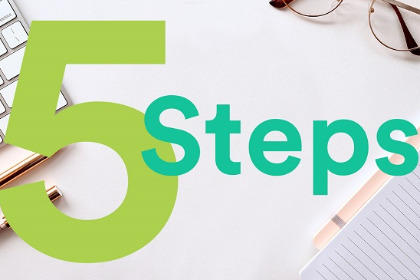
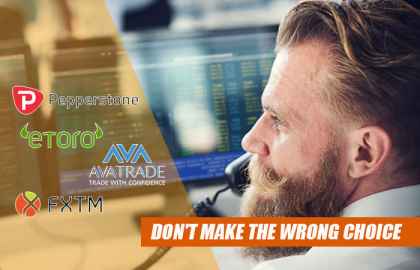

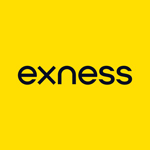




15 Comments
Grant Ward
Aug 11 2022
At this time, ing a broker calls for extreme caution, particularly for those who are just starting out in the market. There are a lot of fraudulent brokers out there whose main concern is making money at the expense of their customers.
Leo Fitz
Aug 11 2022
Before settling on a broker, it is best for newcomers to get some knowledge in the field first. Gain knowledge from a variety of sources. It might come from more experienced traders, or it could come from the internet and websites geared toward providing learning opportunities for new traders.
skye
Aug 11 2022
If you're just starting out, you shouldn't put all of your faith in a demo account because demo accounts are pre-programmed to constantly come out on top. Therefore, if you repeat same actions on the first account, you will be subject to an unanticipated financial setback.
Steve
Aug 13 2022
It is correct that the sole purpose of the demo account is to become familiar with the functionality of the trading program. When trading, to not learn how to make a profit. Learning the ropes first is something that novice traders really need to do before entering the market.
Elena
Aug 13 2022
Article for newcomers that is both very fascinating and quite helpful. Especially for those who are just starting out and are trying to play it safe while really doing themselves harm.
Quinn
Aug 13 2022
Traders who are just starting out absolutely need some direction when it comes to ing a reliable broker, and not just any old broker that promises huge returns but is actually just lying.
Lucy
Aug 13 2022
I disagree since it is much easier to learn the basics with a sample account. Beginners may get a feel for trading by using a demo account, which is a great way to get started. In addition to this, the demo account does not call for any initial funding.
However, in addition to making use of a sample account, beginners still need to learn more from a variety of relevant sources. Learning tools can come in many forms, including books, internet, experienced traders, and others.
Glenn
Aug 15 2022
Because most people who are just beginning their trading careers do not have a lot of money to invest, it is only reasonable for them to look for a broker who charges the lowest possible commission. Due to the fact that novices are still in the learning stage, it is important for them to avoid losing a significant amount of money when trading.
Everyone has at least some experience as a new trader, and ninety percent of new traders always look for the lowest possible broker commission. It is not a mistake; rather, it is a step of learning that must occur before one can proceed.
Carol Danvers
Aug 15 2022
Glenn: I am of the same opinion as you, having started out as a novice myself and opting for the broker with the lowest commission. And it's not a mistake on my part because people who are in my position, who don't have a lot of wealth, have to be very careful about how they use their early resources.
Natasha Romanoff
Aug 15 2022
I concur that it is important to the appropriate broker, or one that is tailored to the needs of the trader. Because the traders' objectives and anticipations vary, it is necessary for them to locate a broker whose services are tailored to their particular anticipations and ambitions.
Billy
Aug 16 2022
It is not always the case that the broker's ideas will lead you in the incorrect route, but it is possible that this could happen. Picking recommendations at random, on the other hand, is the wrong course of action to adopt.
You just need to pick a few recommendations that not only show the fact that you have given this a lot of thought but also are in accordance with your ambitions.
Anne Weaver
Aug 22 2022
The safety of the broker is one of my highest concerns. It is imperative that we confirm that the broker we will work with is not a sham. Even though you are only willing to invest a small amount of capital in order to learn, and even though you are prepared to lose that capital, it is still in your best interest to learn while making a profit.
carl
Aug 22 2022
This piece is spot on, in my opinion. Even though it will cost us extra money, we have no choice but to work with a reliable broker. However, if you a reliable broker in addition to your own ability to study, you will also enjoy gradual increases in your benefits.
Because in most cases, particularly for newcomers, a reputable broker will provide the appropriate recommendations to follow. In addition, a reliable broker will offer free training and direction to newcomers, who are not charged for this service.
Harry
Dec 26 2022
Joshua
Oct 19 2022